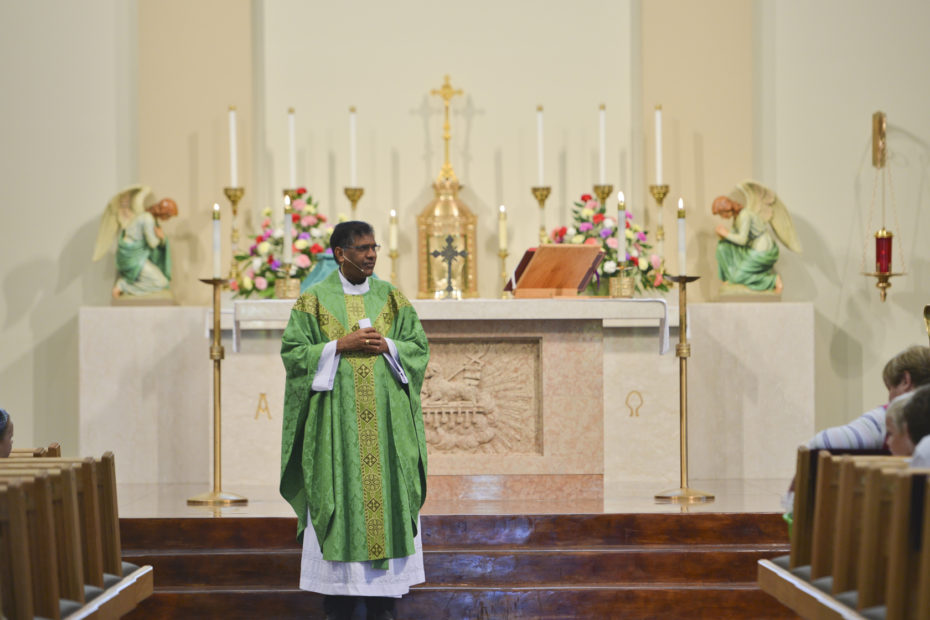The Catholic Church is known for the richness of its tradition and liturgies. Regardless of geographic location, the Church maintains this tradition through the use of a liturgical calendar, which binds all Catholic brothers and sisters together as we assemble to worship. The seasons are clearly defined whether it be Advent or Lent, the Easter Octave or Christmas, a holy day of obligation or a particular saint’s feast day. Of the 52 weeks per year, 32 weeks will pass during Ordinary Time. So how do we, as the clergy and lay ministers of the Church, keep Ordinary Time from being ordinary for the faithful who fill the pews?
To answer that question, we must first remind ourselves what “ordinary time” actually means. In the context of the Church and the liturgical calendar, “ordinary” is derived from the concept of ordinal numbers. An ordinal number denotes the position in a sequence (first, second, third, and so on). This concept has been applied to the liturgical calendar to organize the time of the year wherein our liturgy does not celebrate any particular aspect of the Christian mysteries but rather the fullness of our Catholic faith.
It can be easy to be swept up in the joyful anticipation of Christmas that the Advent season creates, and many Catholics find their faith renewed during the reflective season of Lent leading up to Easter. Parishioners are often more open to recognizing how the Holy Spirit is working in their lives during these particular liturgical seasons. As the joy we celebrate during Christmas or Easter fades and we return to regular routine of life, school, or work, so too does the Church return to a familiar rhythm of ministry and liturgy found during Ordinary Time.
Understanding the true definition of Ordinary Time now shifts the question to one of greater importance – how do we engage in the fullness of our faith? As Catholics, we know that our relationship with God and His call for us to live a faith-filled life of true discipleship demands our attention every day. Ordinary Time provides the ministers of the Church an opportunity to encourage community members to tend to their faith on a daily basis and teach them how to do so when the excitement of the Christmas or Easter miracles isn’t at the forefront of parish life.
Ordinary Time is the season to invite parishioners to join a small faith group and take a deeper dive into the Scriptures. It is the season to engage congregants in meaningful acts of service for the larger community that surrounds them. A season to truly relish in the richness of the Catholic liturgy and find new joy in its deep tradition. It is the season in which we can all explore a deeper communion with God, our faith, and our church community.
The challenge of keeping Ordinary Time from being ordinary can be met in so many ways. The unique mission or charism of each parish and ministry will be the light that guides the path. How are your parish and its ministers working to keep Ordinary Time from being ordinary?




